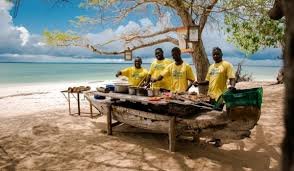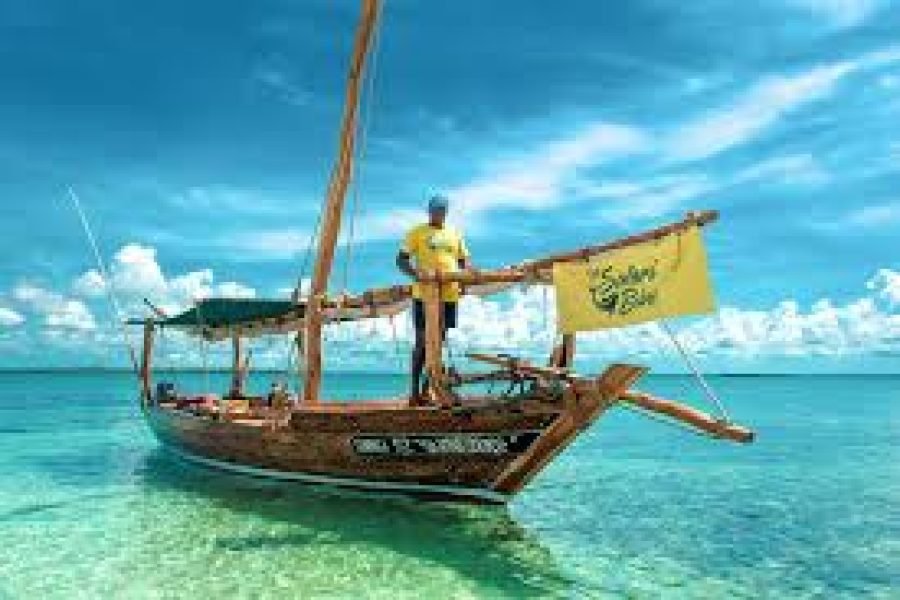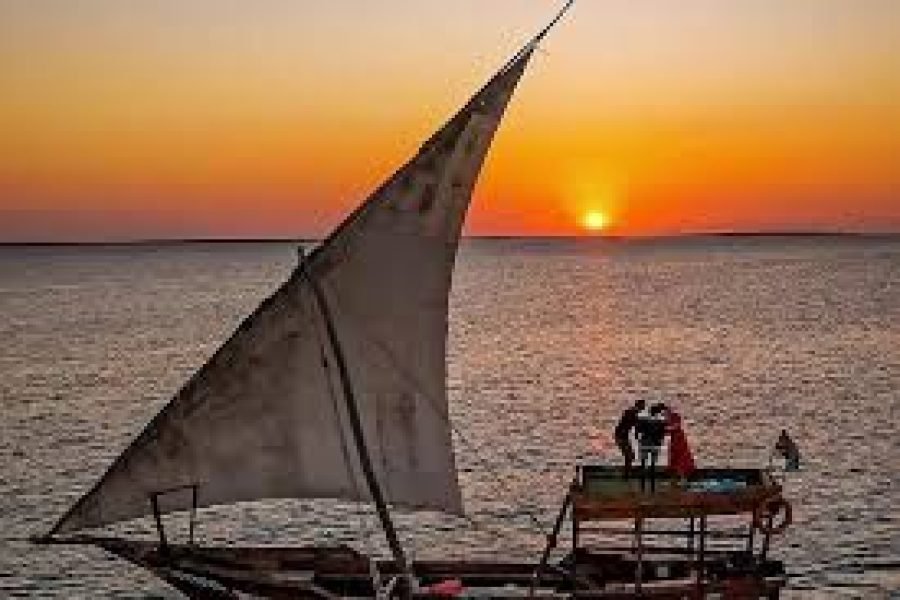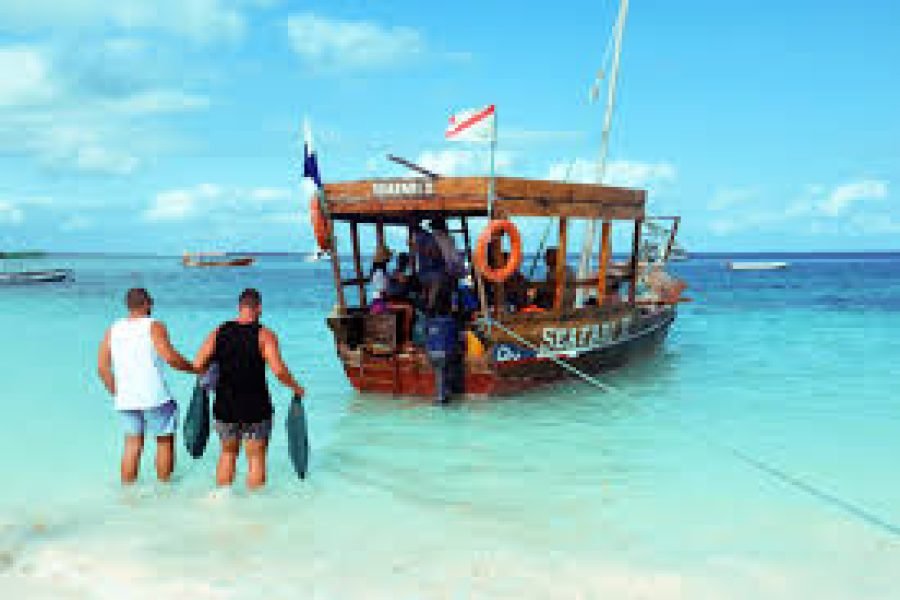Best African Safaris & Travel Services – African Authentic Safaris Ltd
1000 HANDS OF ZANZIBAR TOUR | Authentic Cultural Village Experience
from 0 review
Day Trip
Daily Tour
Unlimited
___
Description
Immerse yourself in the authentic soul of Zanzibar with our revealing “1000 Hands of Zanzibar” tour, a cultural journey that showcases the island’s living heritage through the skilled hands of its people. This captivating half-day excursion takes you beyond tourist attractions into the heart of village life in Nungwi, where you’ll witness the extraordinary craftsmanship, time-honored traditions, and daily activities that define genuine Zanzibari identity. From master dhow builders to weavers, fishermen to culinary artisans, this cultural safari celebrates the countless ways local hands create, sustain, and shape community life. The experience culminates with a visit to Nungwi’s renowned turtle sanctuary, where conservation efforts provide a hopeful counterpoint to traditional practices. Led by knowledgeable local guides with deep community connections, this immersive journey offers cultural insights that few visitors ever witness.
Highlights
- · Authentic immersion in daily village life away from commercial tourist centers
- · Observation of traditional dhow boatbuilding using centuries-old techniques
- · Demonstrations of fishing methods that have sustained coastal communities for generations
- · Encounters with skilled artisans creating handmade crafts and household items
- · Visit to Nungwi’s turtle sanctuary to learn about marine conservation efforts
- · Interactions with local families engaging in traditional food preparation
- · Insights into sustainable practices that maintain Zanzibar’s cultural identity
- · Opportunities for respectful cultural exchange and meaningful photography
Detailed Itinerary

Your cultural journey begins with a convenient pickup from your accommodation and a scenic drive to Nungwi village on Zanzibar’s northern tip. Unlike the tourist beaches nearby, this excursion takes you into the working heart of the community, where your knowledgeable local guide will introduce you to the authentic rhythms of Zanzibari village life. The tour begins at the famous dhow building site along Nungwi’s shore, where master craftsmen continue the centuries-old tradition of constructing wooden sailing vessels without written plans, using techniques passed down through generations. You’ll witness the entire process from wood selection to carving to assembly, learning how these iconic boats have connected Zanzibar to distant shores throughout its trading history. As you continue through the village, you’ll encounter various craftspeople demonstrating traditional skills: women weaving makuti (palm leaf thatch) for roofing, artisans carving intricate designs into wood and coconut shells, and others creating everyday household items from locally sourced materials. Your guide will explain how these handicrafts represent not merely tourist souvenirs but functional objects with deep cultural significance that have sustained community life for centuries. The tour provides opportunities to try your hand at some of these crafts under expert guidance, gaining appreciation for the skill and patience they require. The journey continues with visits to local homes where families demonstrate traditional food preparation techniques, from coconut grating and pressing to spice grinding and bread making in wood-fired ovens. You’ll learn about the fishing traditions that have sustained these coastal communities, seeing how nets are repaired, fish are processed, and boats are maintained. The experience culminates at Nungwi’s turtle sanctuary, a conservation project where injured sea turtles are rehabilitated and protected. Here, you’ll learn about Zanzibar’s marine ecosystem and the community’s evolving relationship with these endangered creatures, from historical consumption to modern conservation. Throughout the tour, your guide will facilitate respectful interactions with community members, creating opportunities for cultural exchange and deeper understanding of daily life beyond the resort areas.
- · Meet and Greet Services with assistance
- · All ground transfers with assistance
- · Express check-in with assistance in your Hotels and Safari Lodges
- · Transport in a comfortable custom-built safari vehicle while on safari
- · All park entry fees
- · Full board accommodation whilst on Safari
- · Unlimited game viewing drives per day whilst on safari
- · All Government taxes and levies where applicable
- · All internal flights
- · International Airfares
- · Tourist entry Visa
- · Travel Insurance (recommended)
- · International airport(s) departures taxes
- · Optional excursions not mentioned in the inclusions and/or quoted separately
- · Expenditures of personal nature such as telephone calls, faxes, e-mails, laundry etc.
- · All alcoholic drinks, soft drinks, wines and spirits
- · Tips and gratuities to driver guides/lodge/hotel staff
- · All other extras not mentioned in the included
Tour's Location
What makes the “1000 Hands of Zanzibar” tour different from other cultural experiences?
Unlike staged cultural performances, this authentic village tour showcases real Zanzibari life as it happens naturally. You’ll witness actual craftspeople, fishermen, and families going about their daily activities rather than demonstrations created for tourists. The experience focuses on genuine cultural immersion in working village environments where traditional skills are still essential to community life, not preserved merely for show.
Is photography permitted during the village tour in Nungwi?
Photography is generally welcomed throughout the tour, creating excellent opportunities to capture authentic cultural moments and traditional crafts. However, your guide will advise when respectful photography etiquette applies, particularly when photographing individuals. Always ask permission before taking close-up portraits, and be prepared to show villagers their images—seeing themselves in your camera often creates wonderful moments of connection and shared joy.
Will we have opportunities to purchase handicrafts directly from Nungwi artisans?
Yes, the tour includes opportunities to purchase authentic, locally-made crafts directly from the artisans who create them. Unlike tourist markets, these transactions directly support village craftspeople without middlemen. Popular purchases include hand-carved coconut shell items, makuti weavings, spice products, and wooden marine carvings. Prices are reasonable, and gentle negotiation is culturally appropriate—your guide can assist with fair transactions.
What should visitors wear for the village cultural tour in Nungwi?
Modest clothing that respects local cultural norms is essential for this authentic community experience. Women should wear shirts covering shoulders and skirts/pants extending below knees, while men should avoid sleeveless shirts or very short shorts. Comfortable walking shoes are necessary for navigating village paths. The conservative dress shows respect for Islamic traditions practiced in Zanzibar villages and enhances your welcome within the community.
What will we learn about the turtle conservation project in Nungwi?
The Nungwi Turtle Conservation project rehabilitates injured sea turtles (primarily green and hawksbill species) while educating both tourists and locals about marine conservation. You’ll learn how the community has transformed from harvesting turtles to protecting them, the rehabilitation process for injured specimens, and release programs that have returned hundreds of healthy turtles to the ocean. The project employs former fishermen as conservationists, creating sustainable alternative livelihoods.
How much walking is involved in the 1000 Hands of Zanzibar tour?
The tour involves moderate walking through village paths, beaches, and craft workshops, covering approximately 2-3 kilometers at a leisurely pace with frequent stops. Terrain varies from sandy beaches to packed-earth village trails. Most walking segments last 10-15 minutes between stops, making the tour accessible for most fitness levels. Comfortable walking shoes are essential, and sun protection is recommended as some sections lack shade.
Is the 1000 Hands of Zanzibar tour suitable for children?
This tour ranks among Zanzibar’s most educational family experiences, offering children authentic insights into how people live in different cultures. Kids particularly enjoy the interactive craft demonstrations, turtle sanctuary, and opportunities to meet local children. Guides adapt presentations for younger visitors, often creating age-appropriate interaction opportunities. For families with children under 8, we recommend the half-day option rather than full-day combined tours to prevent fatigue.
What traditional crafts will we see demonstrated during the village tour?
The tour showcases Zanzibar’s rich tradition of handcrafts including dhow boat building (the most famous Nungwi specialty), makuti palm leaf thatching, coconut husk rope making, wooden door carving, traditional fishing net repair, spice processing, coconut oil production, and henna painting. Depending on the day, you might witness specialized crafts like traditional drum making or coral stone carving. Each demonstration includes explanation of the craft’s cultural significance and historical development.
How does the 1000 Hands tour benefit the local Nungwi community?
This community-based tourism initiative directs 30% of tour fees directly to village development projects selected by community elders, including school improvements, water access, and healthcare initiatives. Additionally, participating families and artisans receive fair compensation for demonstrations and sales, while young community members gain employment as guides and translators. This economic model incentivizes preservation of traditional skills and cultural practices while creating sustainable livelihoods.
Can we interact with local Zanzibari people during the tour?
Meaningful cultural exchange forms the heart of this experience. Unlike superficial tourist-local interactions, this tour facilitates genuine connections through shared activities like palm weaving lessons, fishing net repair demonstrations, or food preparation. Basic Swahili greetings (provided by your guide) enhance these exchanges. Villagers appreciate respectful questions about their lives and traditions, and many families welcome the opportunity to share their perspectives on both traditional and contemporary Zanzibari life.





Leave a review